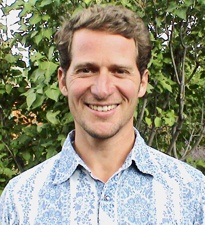
According to the CDC, data from 2020 indicated that traumatic brain injuries (TBI) in the United States resulted in over 220,000 hospitalizations the prior year. This represents over 600 TBIs daily, caused by a wide variety of injuries to the head. Even more common are mild-TBIs, also referred to as “concussions”, with estimations that these represent around 75% of all head injuries. It is hard to know the prevalence of these injuries, as many go untreated and never result in a visit to the doctor at all.
These injuries occur in a variety of ways, including car accidents, sports injuries, or even just slipping and falling on the ice. A blow to the head or a whiplash event common in car accidents can cause significant injury to the brain, resulting in a wide range of symptoms from mild to serious and even life-threatening.
When the brain is injured, it responds like other tissue in the body with swelling and inflammation. The trouble for the brain in this scenario is that it has little room to swell, inside the enclosed space of the skull. This tight squeeze can create a dynamic of decreased blood flow and oxygen availability, that begins a cascade of events including the release of inflammatory neurochemicals, only worsening the situation.
Depending on the severity of the injury, this brain inflammation and irritating neurochemistry can create a host of troubling symptoms. Because the brain is involved with so many aspects of how we function, the symptom picture can be very broad including cognitive function, emotions, sensations, sleep regulation as well as physical issues. It is not uncommon for an individual to experience a combination of issues, like sound and light sensitivity, headaches, fatigue, brain fog, memory and cognitive deficits, dizziness, anxiety, irritability or depression. Sometimes it’s obvious the brain has been injured right away, while often there is a delay for days or weeks before symptoms begin to appear.
To be sure, head injuries can be very serious and require immediate emergency medical care. Some of the signs this might be the case include the following: Drowsiness, different sized pupils, convulsions or seizures, trouble recognizing people or places, confusion or agitation, unusual behavior, or loss of consciousness. If any of these occur, the individual should be taken to the hospital emergency department immediately. Here they’ll get a full work up and brain imaging, to be sure the injury has not resulted in serious consequences like bleeding around the brain. If in doubt, go to the ER.
The symptoms related to the more common and previously described mild-TBI will in some cases resolve on their own. In many other instances they do not, and can develop into what is known as post-concussion syndrome. Post-concussion syndrome is the constellation of symptoms previously described that can persist for weeks or months, and for many people massively affect quality of life and their ability to continue work and social activity.
After getting an evaluation by a medical professional, many discover there are a range of interventions that prove helpful for supporting the body’s innate healing capacity from post-concussion syndrome. Some of the basics include simple advice like rest, minimizing screen time and excessive mental tasks. Beginning an anti-inflammatory diet including alcohol avoidance and good hydration is key, and most importantly avoiding any activity that might result in another concussion.
Holistic medical approaches also include evidence-based treatments like glutathione, omega-3 fatty acids, phosphatidyl choline and serine, just to name a few. Additionally, the application of hyperbaric oxygen therapy has proven useful for resolution of the symptoms associated with post-concussion syndrome.
A multitude of well-done studies have indicated that a series of treatments done in a hyperbaric oxygen chamber can directly address the effects of hypoxia and neuro-inflammation, improving mitochondrial function in injured neurons, and supporting the overall resolution of symptoms related to TBI. Participants in these studies reported improvements in memory, attention, anxiety and depression, as well as overall cognitive function and quality of life measurements.
Whatever combination of treatment approaches are used for a concussion, the days of toughing it out and suffering endlessly after a brain injury are long gone. We now have the science and tools to support individuals who have experienced this all-to-common injury, so they might return to their normal activities and regain their quality of living.
 Joshua Phillips, ND is a naturopathic physician and director at Hawthorn Healing Arts Center in Bend. This article is not intended as medical advice, but for informational purposes only. Dr Phillips can be contacted directly with any questions related to post-concussion syndrome and available treatment options.
Joshua Phillips, ND is a naturopathic physician and director at Hawthorn Healing Arts Center in Bend. This article is not intended as medical advice, but for informational purposes only. Dr Phillips can be contacted directly with any questions related to post-concussion syndrome and available treatment options.
Dr. Joshua Phillips offers a comprehensive restorative and regenerative 4-week treatment program that provides the most comprehensive restorative and regenerative possibilities for patients seeking to maximize health while supporting the resolution of other existing health concerns. Learn more >>>
